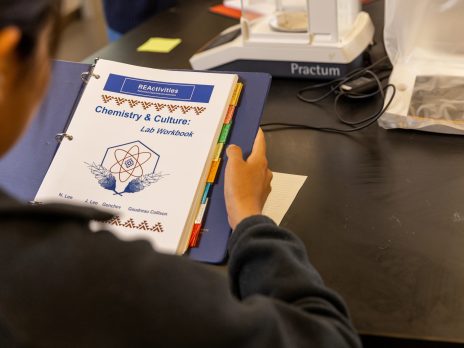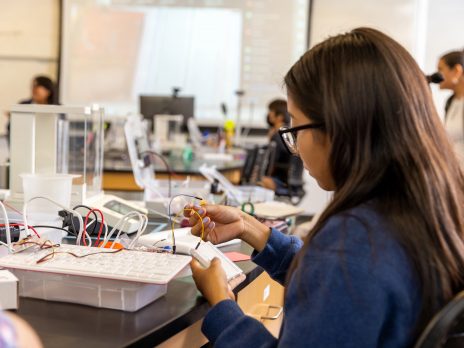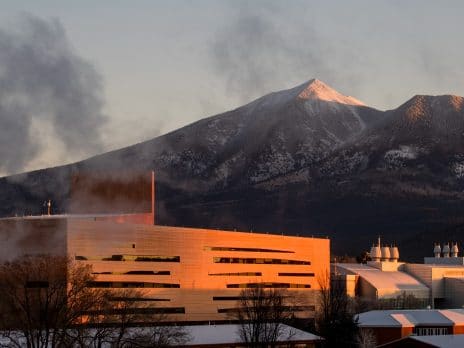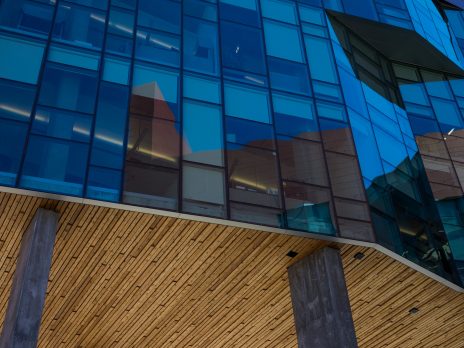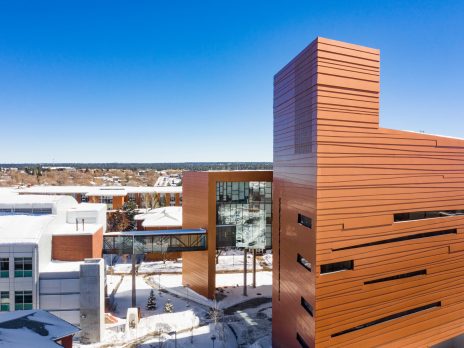What You Get From Our Program
Additional Opportunities
Students can seek additional opportunities through the ACS-Project SEED Website
and at the Summer internship for INdigenous peoples in Genomics (SING)
CARE Instagram
Free Housing for Participants
CARE in the news!
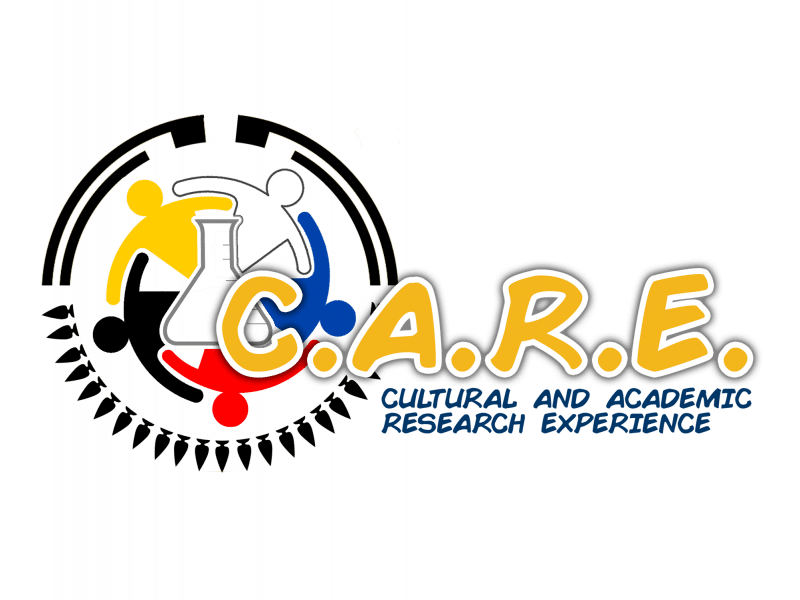
Spring 2026 Workshops
Our Spring workshops are to allow students to gain perspective into different areas of STEM, learn from a professional in their field about what they do, and how they got to where they are now. Every month (once a month) is a new topic, with a different speaker, or multiple speakers. Each workshop has a unique hands on activity implemented with the speaker’s topic.
Participants in good standing from the Spring events will receive priority enrollment processing for the Summer 2026 CARE program, and a stipend.
The spring workshop application is open!
-
Spring Workshop Tentative Schedule Tab Open
-
Eligibility Tab Closed
-
Spring Required Paperwork Tab Closed
Spring Workshop Tentative Schedule Accordion Open
- February 4, 2026 – TBD
- March 4, 2026 – TBD
- April 8, 2026 – TBD
- May 6, 2026 – TBD
- Dates and topics are subject to change.
You can attend either virtually or in-person. All events will be held on NAU campus from 5-8pm AZ Time.
Eligibility Accordion Closed
To comply with federal funding eligibility for CARE has been modified:
- Interested in chemistry and/or STEMM (science, technology, engineering, math, medical)
- Is a military affiliated child (dependents of active duty/veteran) or attend a military connected school.
- 15+ years by February 5, 2026
- under 15 year old participants will be determined on case-by-case basis
If you do not meet any of these criteria you are still welcome to apply.
Spring Required Paperwork Accordion Closed
This is the paperwork for the Spring workshops and NOT for the Summer program.
This paperwork needs to be submitted to Kaelyn.Acothley@nau.edu by January 23, 2026 upon acceptance. We have created 2 useful videos to help you fill out the important documents and vendor authorization form.
- Assumption of risk, waiver, release, and consent for non-student minor participation
- Behavioral expectations of non-student minors
- Disclosure and approval of one-on-one interactions with non-student minors
- Non student minor image release
- Code of conduct
- Vendor authorization
The supplementary safety plan does not need to be signed, but does need to be read and reviewed by the participant and their parent/guardian.
Summer 2026 Program
Application will open January 2026
-
General information Tab Open
-
Eligibility Tab Closed
-
Program Schedule Tab Closed
-
Required Paperwork Tab Closed
General information Accordion Open
The Summer 2026 program will be offered only in-person from June – July 2026. The virtual program has been put on hold until Summer 2026. Arizona and non-Arizona residents are welcome to apply to the program.
- We are accepting up to 20 in-person participants. All participants will receive:
- Hands-on research experience
- Mentor experience
- College preparation through professional development sessions (resume writing, college applications, etc.)
- a stipend up to $4,500 (if participant is in good standing throughout program duration)
- honors dorm housing
- Meal plan/meal stipend
- Automatic admittance into the Honors College at NAU on successful completion of the program*.
- *Participant still has to apply to NAU as an undergraduate and submit a housing portal application
- All Honors fees waived
- All participants must:
- Be available for 90% of the sessions.
- Prior approval for absences are required.
- Be available from 9am – 4pm MST.
- Breaks will be provided throughout the day.
- Be available for 90% of the sessions.
Eligibility Accordion Closed
To comply with federal funding eligibility for CARE has been modified:
- Interested in chemistry and/or STEMM (science, technology, engineering, math, medical)
- Is a military affiliated child (dependents of active duty/veteran) or attend a military connected school.
- 16+ years by June 1st, 2026
- under 16 year old participants will be determined on case-by-case basis
If you do not meet any of these criteria you are still welcome to apply.
Program Schedule Accordion Closed
CARE schedule 2025 – This 2025 schedule will closely resemble the 2026 schedule
This is a PDF/printer friendly version available for download.
Required Paperwork Accordion Closed
This paperwork needs to be submitted to Kaelyn.Acothley@nau.edu upon acceptance into the program. We have created 2 useful videos to help you fill out the important documents and vendor authorization form. The following paperwork is REQUIRED:
Assumption-of-Risk-Waiver-Release-and-Consent-for-Non-Student-Minor-Participation
Behavioral-Expectations-for-Non-Student-Minors
Disclosure-and-Approval-of-One-on-One-Interation-with-a-Non-Student-Minor
Non-Student-Minor-Image-Release
- Upon acceptance into the program participant must refer to the Next Steps document for deadlines and further instructions that include:
- Completing the Summer required paperwork
- Submitting official/unofficial transcripts
- Upon acceptance applying as a non-degree seeking student for the Summer to receive 3 hours of university credit for CHM299 (tentative)
- Must submit vaccine records to Campus Health Services (chs.records@nau.edu)
The following paperwork does not need to be signed and returned, but does need to be reviewed as it is useful:
Permission slip – Will need to be filled out on a case-by-case basis as some labs might do fieldwork off campus.
In Person Campus Map – A map of campus for when you arrive to NAU
CARE Timesheet Fillable – Will be used to track hours
CARE Packing List – A list of things to bring, and things to not bring for the Summer.
Additional Information
For more information, contact the CARE staff:
Kaelyn Acothley, CARE Program Coordinator
Dr. Naomi Lee, CARE Program Director (phone: (928) 523-7379)
The CARE program is proud to be supported by the NIH National Institute of Neurological Disorders and Stroke (NINDS), the National Institute of Drug Abuse (NIDA), Army Educational Outreach Program (AEOP), the Central Arizona Section of the American Chemical Society (CAZACS), and the Flinn Foundation.

